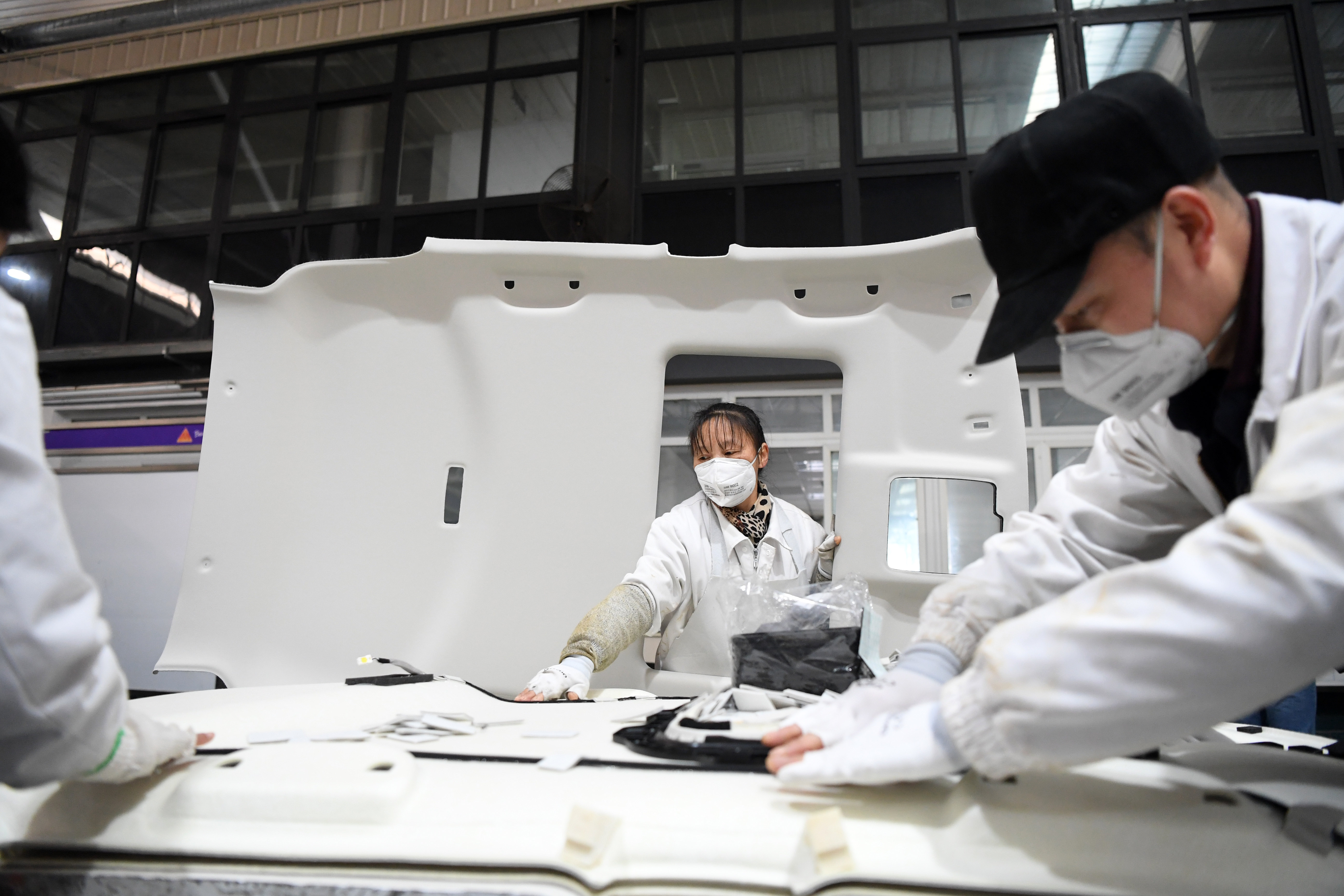Int'l community upbeat about Chinese economy undergoing epidemic stress test
The International Monetary Fund (IMF) supports China's efforts to tackle the outbreak, and is confident that China's economy "remains resilient," IMF Managing Director Kristalina Georgieva has said.
An extended new year holiday has slowed down travel and business activities in China due to the unexpected novel coronavirus outbreak.
While adopting timely, comprehensive and stringent measures to combat the epidemic, China has announced its policy toolkit to shore up businesses. Analysts and business insiders of many countries have voiced their confidence that the Chinese economy will be left unscathed in the long run.
The International Monetary Fund (IMF) supports China's efforts to tackle the outbreak, and is confident that China's economy "remains resilient," IMF Managing Director Kristalina Georgieva said on Twitter Feb. 3.
Employees work at the workshop of Faurecia (Chongqing) Automotive Parts Co., Ltd, a Sino-French joint venture, in southwest China's Chongqing Municipality, Feb. 12, 2020. [Photo/Xinhua]
Production resumption
On Feb. 10, the date of production resumption set by many provinces, transport networks saw increased passenger flow, a slew of wholesale markets and supermarket chains returned to normal operation, and manufacturers resumed operations with precautionary measures taken to prevent a further transmission of the virus.
More than 80% of the 23,000 manufacturing subsidiaries of 96 centrally-administered state-owned enterprises have resumed production as of Wednesday, except those required by local governments to delay work resumption, according to the State-owned Assets Supervision and Administration Commission of the State Council.
By Wednesday, 83% of power grid and power generation companies have resumed work, while in the oil and petrochemical industry, the resumption rate reached 96.8%. Meanwhile, work on related key national projects have also begun to move forward in an orderly manner, the commission said.
More enterprises have adopted flexible forms of returning to work according to their own characteristics.
Foreign companies in China also joined the rank. European plane maker Airbus, for instance, in a statement released on Tuesday, announced the decision to gradually increase production at its China division.
According to a survey conducted by the Shanghai Association of Foreign Investment earlier this week, more than 80% of the 54 foreign companies surveyed in Shanghai have fully or partially resumed production.
Administrative measures have been offering a helping hand in time to businesses. China's central bank on Monday issued special loans totaling 300 billion yuan (about US$43 billion) at a preferential rate to policy and commercial banks, aiming to support business activities directly linked with epidemic control.
Fiscal authorities have also rolled out measures, such as supplying logistic services and financial assistance, to support small and micro-enterprises, which are a key force to underpin the labor market and protect economic vitality.
On financial markets, China's central bank has added a total of 1.7 trillion yuan (about US$243 billion) into the banking system to boost liquidity and stabilize market expectations.
Stephen Roach, a senior fellow at Yale University's Jackson Institute of Global Affairs, said he is "very optimistic on the prospects for the Chinese economy," and "there's plenty of opportunities for fiscal and monetary stimulus."
Tan Kok Wai, the Malaysian government's special envoy to China, said the Chinese government's effective handling of the outbreak will build business confidence and push everyone from small businesses to state-owned companies to move beyond this temporary problem.
"The message is clear — this will pass and it will be back to business as usual," he said.


